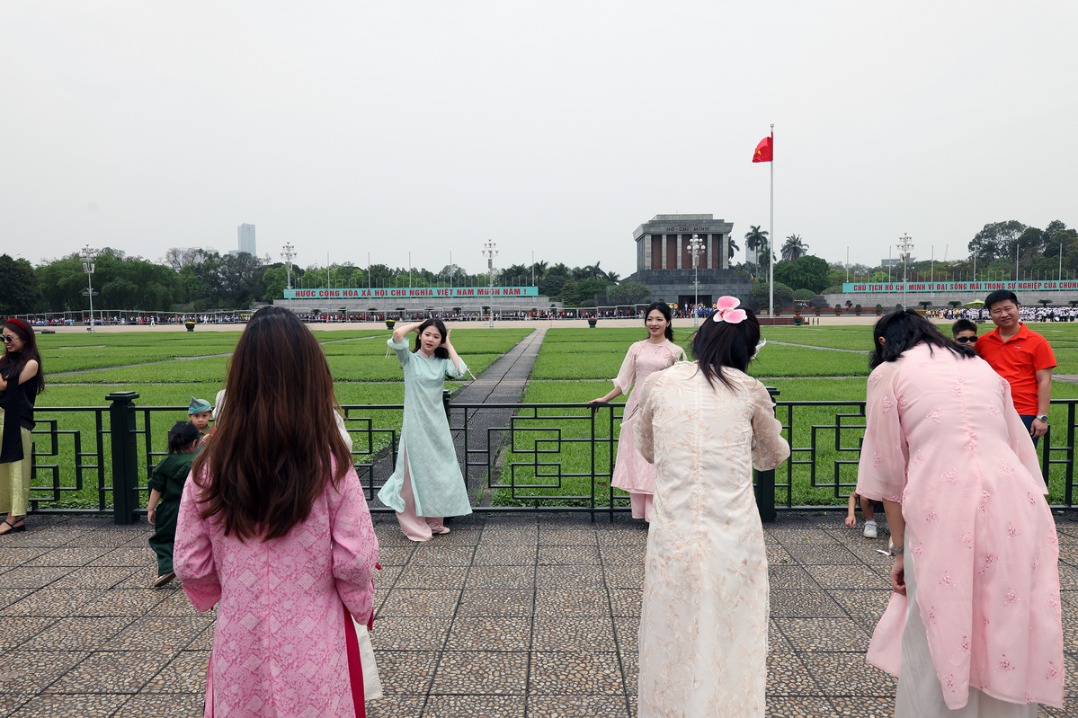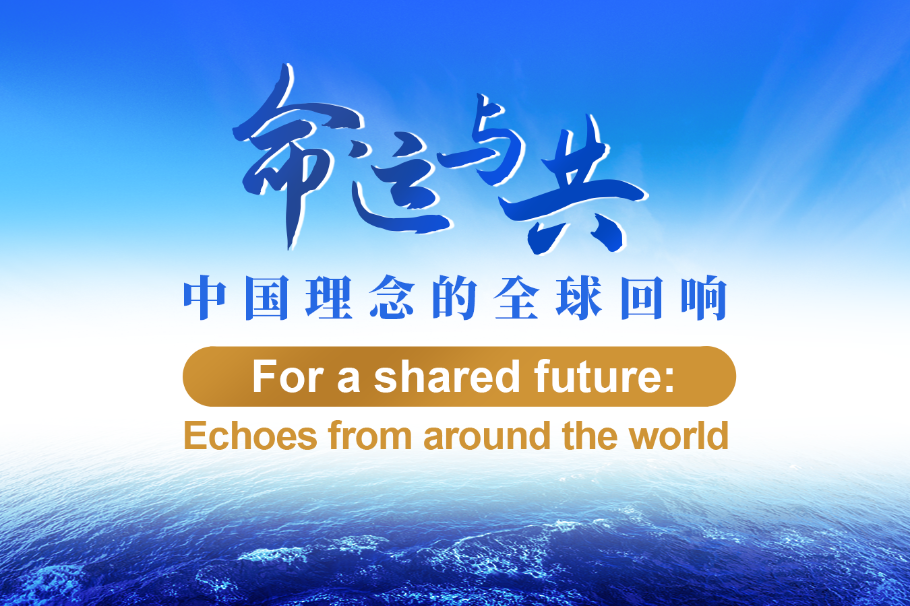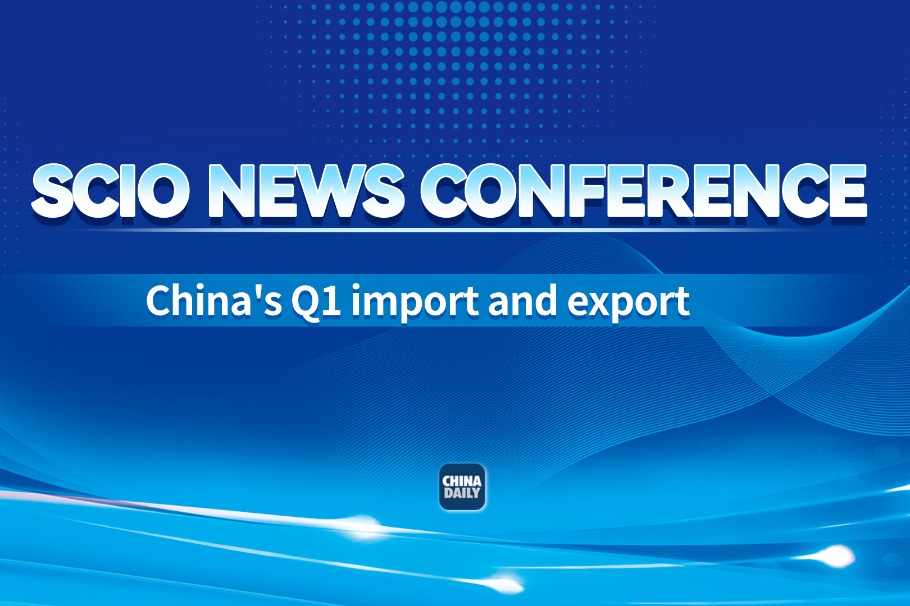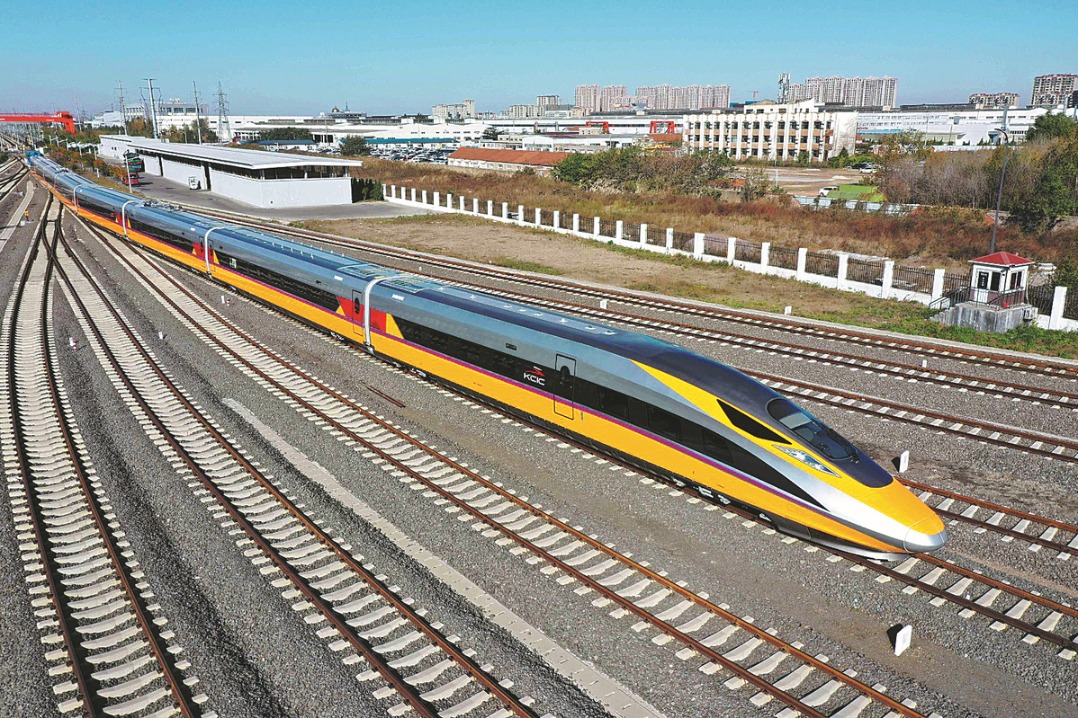At a turning point


China and Germany must resist attempts to see everything through the prism of ideology and properly manage differences to cope with challenges such as climate change, COVID-19 and food security
Zeitenwende, meaning a historic turning point, is the word of the year 2022 in Germany. The outbreak of the Russia-Ukraine conflict has shaken the foundation of Europe's security architecture and is viewed in the country as marking the failure of Germany's foreign policy toward Russia over the past 30 years. It has also prompted the German government to rethink its policy toward China. Lately, there is a trend of demonizing China in German domestic politics and media, with bilateral economic and trade ties misinterpreted as Germany's dependency on China, differences in values exaggerated infinitely, and political mutual trust undermined.
Germany's coalition government will unveil a new China policy for 2023. Reducing dependency on China, human rights issues and the Taiwan question could possibly become key words that determine the future development of bilateral ties for a certain period to come.
When it comes to policies toward China, there exist great divergences inside the coalition government — the Social Democrats advocate a problem-oriented approach and a continuation of former German chancellor Angela Merkel's China policy featuring pragmatic cooperation; while the Greens and the Free Democrats emphasize a value-based approach and tend to criticize China's affairs. By and large, there are two different voices.
The first voice is to strengthen cooperation with China.
German Chancellor Olaf Scholz paid an official visit to China in November 2022, becoming the first European leader to visit China since the outbreak of the COVID-19 pandemic and the first leader of a major Western country to do so after the 20th National Congress of the Communist Party of China. When talking with Chinese President Xi Jinping, Scholz made clear his opposition to "decoupling".Scholz's China policy is based on two principles. First, China's rise is not an excuse to limit cooperation with China; Germany needs competition from China and should seek cooperation where it lies in mutual interest. Second, striking a balance between competition and cooperation requires a sense of proportion and pragmatism, rather than stronger protectionism.
The second voice is to reduce Germany's dependency on China and limit cooperation with China.
Strengthening economic and trade cooperation has been the foundation of Germany's China policy since the end of the Cold War. German Foreign Minister Annalena Baerbock is attempting to change that policy and make human rights issues the determining factor for shaping future bilateral relations. Since the Greens took over the Ministry for Economic Affairs, the ministry has also started to question the rapid growth of China-Germany economic and trade relations over the past three decades. It is formulating new trade policies aiming at strengthening German companies' risk management over their China business, reduce German investment in China, and impose more restrictions on Chinese companies' investment in Germany.
According to the coalition agreement signed by the Social Democrats, the Greens and the Free Democrats, Germany will seek cooperation with China while seeing it as "a partner, a competitor and a systemic rival". Currently, Germany sees China more as "a competitor and a systemic rival" than "a partner". As the largest economy in the European Union, Germany's future China policy is affected by many factors including the China-US strategic rivalry and the Russia-Ukraine conflict.
Since the outbreak of the Russia-Ukraine conflict, the transatlantic partnership has been further strengthened. German Chancellor Scholz said that Germany will strengthen coordination with its transatlantic partners on its future China policy. The United States hopes that Germany takes a clear stand against China, but Germany has been hesitant to do so. The German economy, an export-oriented industrial manufacturing powerhouse, faces numerous challenges arising from the COVID-19 pandemic and Russia-Ukraine conflict. Suspension of the Nord Stream natural gas pipelines has broken Germany's long-term energy security layout, resulting in rising manufacturing costs.
Moreover, under the principle of "America first", the US views Germany as a competitor in many fields. Currently, their biggest divergence lies in the US Inflation Reduction Act, signed into law in August. Some of the protectionist provisions in the law have put European manufacturers at a competitive disadvantage. If those divergences are not properly resolved, a new trade conflict could break out between the US and Europe.
Given the ongoing Russia-Ukraine conflict, how to cope with the conflict of interests with Russia will be the biggest challenge for German domestic politics and foreign policy. Out of security concerns, Germany will have to change its China policy. However, the size of China-Germany economic and trade cooperation is much larger than that between Germany and Russia. Taking a hawkish stance against China will inevitably exact a heavy toll on the German economy. The so-called reducing dependency on China is not equal to an economic decoupling, but means seeking more diversified international cooperation in industrial areas of greater strategic significance.
The EU and Germany have unveiled a range of policies targeting China. The EU's Global Gateway strategy and "Indo-Pacific" strategy are aimed at increasing investment in China's neighboring countries and seek alternative production bases. In geoeconomics, Germany attempts to seek a rebalancing in its Asia policy — attaching greater significance to relations with countries such as Japan and India and reinforcing its engagement in the "Indo-Pacific region".
The domestic debate over Germany's China policy has brought more uncertainty to the development of China-Germany economic and trade relations. Chinese companies recently encountered setbacks in their investment in Germany. However, German companies' trade with Chinese companies and investment in China have not been substantively affected by the calls for "reducing dependency on China and limiting China-Germany cooperation".
As China's largest trading partner in the EU, Germany's China policy is largely a response to China's economic development. Promoting German exports to China and strengthening Germany's economic presence in China will remain the driving force for the development of bilateral relations.
China and Germany must properly manage their institutional differences, respect each other and each other's core interests. They should also jointly resist disturbance from bloc confrontation and attempts to see everything through the prism of ideology. When meeting with Scholz, President Xi stressed that political trust is easy to destroy but difficult to rebuild and that it should be nurtured and protected by both sides. China and Germany, the world's second-largest economy and the largest economy in the EU, are both constructive forces for the international order. Bilateral cooperation, for now and in the future, bears great significance to coping with global challenges such as climate change, the COVID-19 pandemic and food security.
The author is an associate professor with the Institute of International Studies at Fudan University. The author contributed this article to China Watch, a think tank powered by China Daily. The views do not necessarily reflect those of China Daily.
Contact the editor at editor@chinawatch.cn.
































